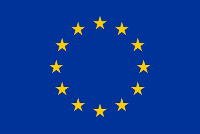Due Process and Rectifying the Basic Infringes of Human Rights in Liberian Prisons
We have all heard it when the alleged perpetrator of a crime says “I want to make a phone call”. It seems the right thing to say when you have been accused of a crime and you need help from your parents, guardian or a lawyer. We have all got used to hearing these same words used in countless TV shows that we take it for granted.
Finn Church Aid and its partners the Rural Human Rights Activist Program (RHRAP) and the Association of Female Lawyers of Liberia (AFELL) are embarking on a two year human rights project. The project is funded by the European Union, and it aims to monitor human rights violations in Liberian prisons and engage in proactive dialogue with authorities. As part of a comprehensive referral system, prisoners are given access to a telephone so that they can talk to their families, and those with issues of wrongful imprisonment can have access to lawyers.
That’s right access to a phone, a simple basic right!
Finn Church Aid and its partners will train Liberian police, prison guards, judges, lawyers and wardens and key people from communities on international human rights and prisoners’ rights standards. Beside the possibility to access phone privileges in the three target national prisons, prisoners will also enjoy pro bono legal assistance from selected lawyers to review their cases of incarceration.
Liberia in the past has gone through a brutal civil war and the latest Ebola epidemic has created a disorder of documentation of who is in prison and why. This practical and systematic project will give the Liberian authorities an overview if due process of incarceration has been followed.
The steps of incarceration should follow six basic steps. Complaint – arrest – court appearance – incarceration pre-trial – trial – release or detention.
According to RHRAP and AFELL, detainees have not been charged, have never seen a court, and have been put straight to jail by someone with power. Others have been on pre-trial detention for years without hope of seeing a court in the near future. This project will address the issue through a comprehensive approach, engaging the right people and institutions in finding long-lasting solutions.
The second part of the project is to strengthen the organisational capacities of partners to maximise their chances for international funding in the future and carry out quality work according to international standards.
Hoslo Jiwa
Country Director Liberia, Finn Church Aid
The project “Providing Access to Justice and Gender Sensitive Legal Awareness at Grassroots Level” contributes to enhance the rule of law and the respect of the fundamental human rights of the most vulnerable prisoners in Liberia, most often women and youth.
The project is implemented in Lofa, Bong and Nimba counties in Liberia in 2017–2018. It’s funded by the European Union – The European Instrument for Democracy and Human Rights (EIDHR).

Delegation of the European Union to Liberia
EIDHR: The European Instrument for Democracy and Human Rights
